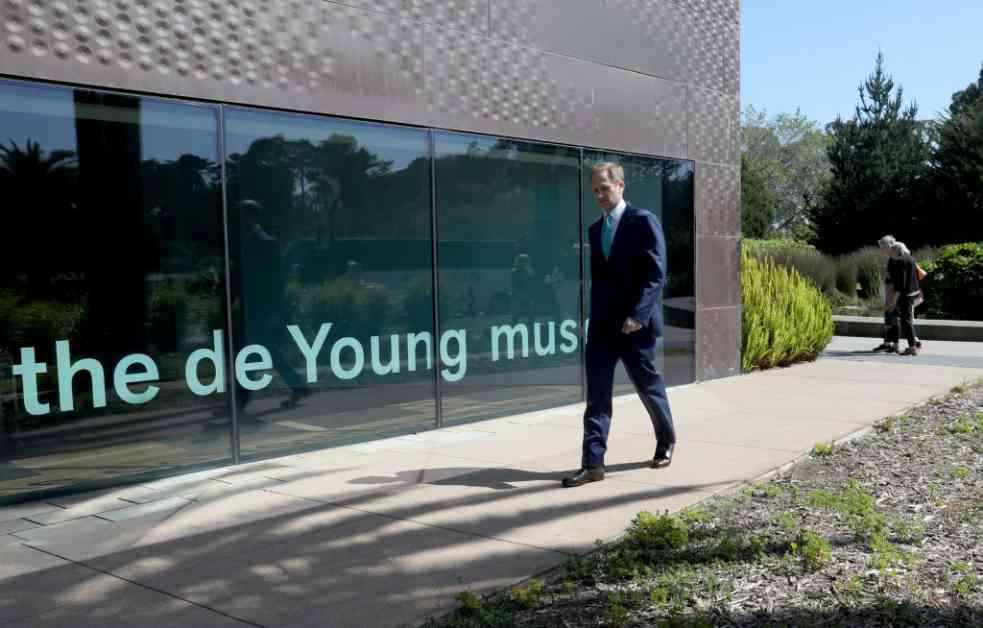Summary:
The American Civil Liberties Union (ACLU) has filed a lawsuit against the National Endowment for the Arts (NEA) over a gender clause in its funding policy, claiming it restricts the types of works that can be shown. The ACLU’s Rhode Island chapter filed the suit on behalf of theaters, arguing that the policy, implemented after President Trump’s executive order, is unlawful. Meanwhile, San Francisco museums are facing budget cuts, considering reducing hours, and eliminating positions due to financial strain.
ACLU Sues NEA Over Gender Clause
The American Civil Liberties Union (ACLU) has taken legal action against the National Endowment for the Arts (NEA) regarding a controversial gender clause in its funding policy. This clause, which prohibits the promotion of “gender ideology,” has sparked a lawsuit from the ACLU’s Rhode Island branch. The ACLU argues that this policy, put in place following an executive order from President Donald Trump, severely limits the scope of artistic works that can receive funding.
The lawsuit, filed on behalf of several theaters, contends that the NEA’s policy is an overreach of executive power and has created confusion and chaos in the arts funding landscape across the United States. While the focus of the lawsuit is primarily on theatrical productions, its implications extend to any individual or institution seeking financial support for artistic endeavors through the NEA.
SF Museums Face Budget Cuts
In another development in the arts world, museums in San Francisco are grappling with significant budget cuts, leading to potential changes in operating hours and staff reductions. The Fine Arts Museums of San Francisco (FAMSF), responsible for managing the de Young Museum and the Legion of Honor, have put forth a cost-cutting proposal in response to the city’s financial crisis and a 15% reduction in general fund allocations.
The proposed plan outlined by FAMSF includes reducing nearly a quarter of city-funded positions, particularly impacting security roles, human resources, and museum operations. Additionally, the museum consortium has suggested closing the de Young and Legion of Honor museums on Tuesdays, in addition to their usual Monday closure, as a means of cost-saving. However, concerns have been raised about the potential negative impact of reduced operating hours on annual visitors, tourism, and the local economy.
Other San Francisco museums, such as the Asian Art Museum, are also bracing for cuts, particularly in security positions. Despite warnings about the safety implications of such reductions, museums are being forced to make difficult decisions in response to financial constraints.
The Bacon Connection
In a curious and intriguing twist in the art world, a personal story unfolds involving Barry Joule, who claims to possess a collection of sketches and paintings gifted to him by renowned artist Francis Bacon before his passing. Joule’s relationship with Bacon, which began with odd jobs and blossomed into a friendship, has generated controversy over the authenticity and credibility of the artworks in question.
While the artist’s estate has vehemently denied the significance of these works, Joule’s possession of tape recordings of conversations with Bacon adds a layer of intrigue to the story. Despite legal disputes and museum interest, Joule’s connection to Bacon and the mysterious artworks he holds continue to captivate the art world’s attention.
In conclusion, the intersection of legal battles, financial struggles, and personal connections in the art world paints a complex picture of the challenges faced by artists, institutions, and supporters alike. Through lawsuits, budget cuts, and enigmatic relationships, the art community navigates a landscape fraught with uncertainty and intrigue.












